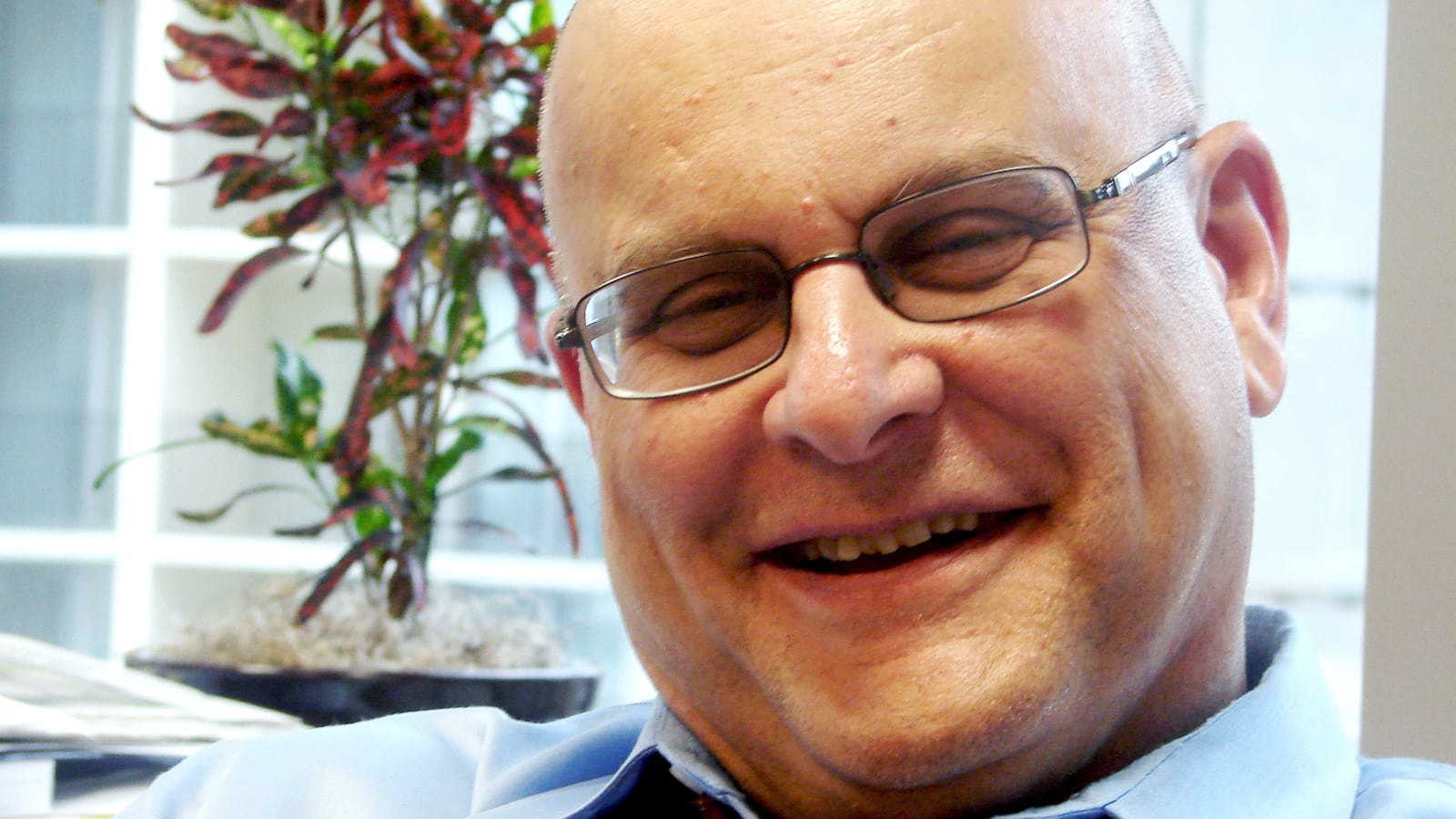This article was originally published in The Notebook. In August 2020, The Notebook became Chalkbeat Philadelphia.
UPDATED: 7:08 p.m.
The William Penn Foundation, citing "differences in approach," has announced that it is searching for a new president and that Jeremy Nowak is leaving.
The foundation’s press release says that its board and Nowak, who became president in June 2011, "mutually decided that the time is right for Nowak to transition out of his current role."
Nowak guided the foundation through a strategic planning process, but had also become a lightning rod for controversy — especially regarding William Penn’s role in paying for the Boston Consulting Group to develop a transformation and austerity plan for the School District.
The William Penn Foundation, founded and presided over by the Haas family of the former chemical giant Rohm & Haas, is a major funder of the Notebook and of many other education-related organizations in the city.
The foundation, with assets of $2 billion, makes about $80 million in grants annually in education, the environment, and culture. It is the largest foundation that directs its grantmaking exclusively to the Philadelphia region.
The strategic plan developed under Nowak focuses on "closing the achievement gap" for children in low-income families, protecting the Delaware and Susquehanna watersheds, and "advancing Philadelphia as a leading center of creativity that enhances civic life."
The foundation statement said it remained committed to the strategic plan, but that the board and Nowak had differences regarding its implementation.
David Haas has taken over as chair of the foundation’s board from Janet Haas. As recently as July, Janet Haas was identified as chair of the board, and since then, there has been no public statement on the website about the change, when it happened or why it was made.
Foundation spokesman Brent Thompson said that the change in board chair has little significance.
"David and Janet have served in those roles, changing back and forth several times over the past 20 years, and they always work well together no matter who is chair," he said via email.
Nowak’s departure "is a big change for the philanthropic community in the region, just when it appeared the pieces were falling into place and things settling down," said Debra Kahn, executive director of Delaware Valley Grantmakers.
Helen Cunningham, executive director of the Samuel S. Fels Fund, said she was "shocked and upset for our community."
"The not-for-profit world needs some stability. … So many people’s lives are discombobulated when such a big organization has a shakeup like this." she said.
Feather Houstoun, Nowak’s predecessor as head of the foundation, said that William Penn brought in Nowak because the board "wanted someone with a bold vision and a real ability to bring everyone to focus on a particular set of issues." At that, she said, "I think he did a great job."
Houstoun, now a member of the School Reform Commission, would not speculate on why the break occurred now between Nowak and the foundation’s board of directors.
In pursuit of the goal to close the achievement gap in education, Nowak pushed the District in its strategy of creating more "high-performing seats" in schools, regardless of whether they were District-run, charter, or private. Under his leadership, the foundation gave $15 million to the Philadelphia School Partnership in support of that goal.
PSP, formed two years ago, quickly became a major player in the city’s education world, distributing much of that money to replicate or expand schools that it deemed successful and innovative.
The foundation was also the presumed funder behind the District’s plan to rethink and recalculate its School Performance Index, which has been used as a factor in many important decisions, including which schools to turn around and which may be closed.
A District source said that they had been assured of the foundation’s continued support despite the leadership change.
In his tenure at William Penn, Nowak had made no bones about wanting to work directly to increase the supply of good schools rather than continue the foundation’s past focus on supporting activist efforts and organizing campaigns. Student advocacy groups with a long history of foundation support had publicly expressed fears that the foundation was planning to cut off their funding.
One thing the foundation did make clear under Nowak was a continued commitment to invest in advocacy for equitable education funding.
Nowak’s role in promoting the "high quality seats" reform direction, especially what was perceived as support for school privatization, precipitated heavy pushback from some elements of the city’s education community.
Most recently, on Nov. 15, Parents United for Public Education informed the William Penn Foundation and BCG that it had prepared an ethics complaint against the two organizations regarding the work that BCG had done for the School District.
A legal analysis from the Public Interest Law Center of Philadelphia argued that William Penn and BCG were actually engaged in lobbying a public agency – the School District – and should have been registered as such. The analysis was based on the fact that BCG continued to work at the District at William Penn’s expense after its official contract with the School Reform Commission had expired.
No complaint with the Philadelphia Board of Ethics has been filed.
Until a permanent successor to Nowak is found, Helen Davis Picher, who had worked at the foundation for 30 years and most recently headed its evaluation arm, is coming back to serve as interim leader.
This is a developing story. Check back for updates.


